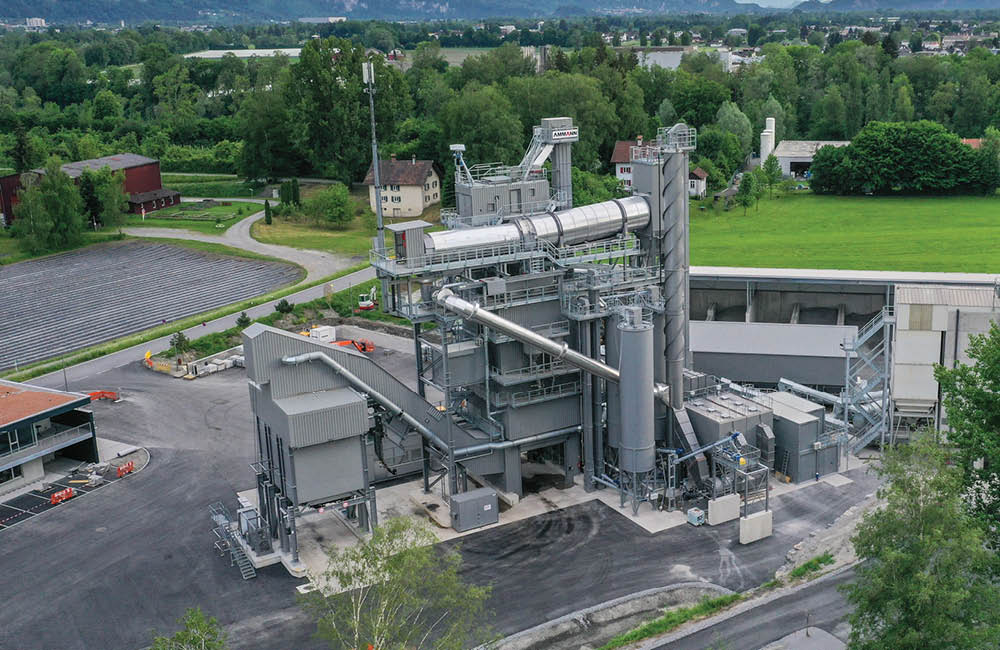
Just how do you achieve the optimum aggregates worksite? Alexander Proudfoot claims it can deliver this for clients. Angus Maclean, the company’s EVP, Client Delivery Europe, explains how
What if you could improve performance by €1 per tonne in just 6 months, simultaneously in 100+ aggregate sites, even if you think you’ve already optimised everything? You can.
Alexander Proudfoot (AP) is a leader in Operational Transformation and through our work in the aggregates industry, we have delivered immediate and enduring value to clients including LafargeHolcim, Heidelberg Cement, CRH, and more.
We’ve partnered with these leading Aggregates firms and others on a multitude of major improvement projects. In 45 different countries and in more than 900 locations, we’ve designed and implemented more than 25 Aggregate improvement programmes. Programmes that have helped our clients realize tangible and sustainable benefits increases of up to 1€ per tonne in EBITA in just 6 months.
With our clients, these programmes have engaged and inspired the quarry management teams through our collaborative, shoulder-to-shoulder approach which we call Co-venture - a fundamental difference in the way we perform our work, and a key reason for the substantial benefits the programmes yield.
Some examples of Improvement Programmes and engagement snapshots include:
• Operational Excellence
• Commercial Excellence
• Supply Chain/ Logistics Excellence
• SG&A Excellence
• Post-Merger Integration Improvement Programmes
UK 2015
At 80+ sites, Operational & Commercial Excellence programme to optimize the cost per tonne by 0.5€, while improving the active management behaviour skills of the quarry teams. (48-week project)
FRANCE 2014
At 100+ sites Operational Excellence programme to reduce the cost by 1€ per tonne, and improve the active management skills of the quarry teams. (52-week project)
GLOBAL 2012
Designed, Developed, and Implemented a standard/harmonised Quarry Management Operating System with best practices in USA, Canada, Europe and Africa. Initially piloted in 18 representative quarries (big, medium and small) and then rolled out to all sites. Pilot project benefits were approximately €6 million, and a year later, benefits had risen to €17 million. This system continues to be used today. (27-week project)
Market View
Through our client work, ongoing research and engagement in the industry, we see strong opportunities in the market. In Europe and North America demand remains flat overall. However, firms that are able to optimize the cost per tonne, offer innovative products, and manage the increasing environmental constraints, will continue to perform well. Developing selective pricing, fast turnarounds and managing the commercial hotspots will remain crucial. We also see increased growth in aggregate recycling in key markets such as the UK and Germany. From a talent and people-perspective, the focus needs to be on planning for the future operations organization. The key question is: Who will be the future first line leaders? Quarry leadership teams are not getting any younger and firms need to have a multiyear talent replacement program.
Africa as well as the Middle East are still enormous growth markets, because the infrastructure is rudimentary and there is potential to build for years to come. Many big players are investing there and competing with local companies for market share. Typically, in these regions, personnel costs are very low, so the focus is more on process improvements to enhance throughput and delivery accuracy as well as quality, and consistency of product.
In Asia, the cool down of the Chinese economy - GDP was 6.7% in the first half of 2016, has meant that investments in fixed assets was 2.4% lower than that of the same period of last year. Even though there was a 1109 M ton or 3.2% increase in cement production, most cement manufacturers are struggling in low margin situations due to intensified market competition and significant structural oversupply in cement capacity and construction materials in China. It has also weakened commodity demand across the region.
The weak price of commodities and stringent environmental regulations in the region significantly impacts the profit of quarry operators. In addition, rising labour rates, maintenance and acquisition costs of heavy equipment have also increased continuously. With the threat of rising interest rates on the horizon, to survive in the low margin environment, Operators need to consolidate operations or find ways reduce their operating costs.
However, despite this “gloomy” current mood, the outlook has the promise of better times ahead as China expands their demand through the “One Belt One Road” policy, quarry operators should prepare themselves to respond to this by taking the opportunity now to ensure their organisations and processes are lean and optimised for efficiency and lowest cost operations.
The future
Our view of the opportunities in the Aggregate materials market is quite positive despite the current downturn in market conditions. It varies by location and market because there are many mergers and acquisitions still in progress. We are seeing that market leaders are now feeling fairly comfortable with stabilization in their processes and profitability – an important change after many years of volatility /acquisitions & divestments. This provides a solid foundation to address today’s challenges and position for future growth.
In our discussions with senior leadership across sector the common themes we hear, include the need for acceleration, increased predictability, and people proficiency in terms of skills and talent.
Our clients are telling us they need help to accelerate the operations transformation initiatives either in progress or those they would like to begin. They say, “we know what to do, how to do it, we know what the results could be but we just don’t have the capabilities and resources internally, to achieve the goals in the necessary time-frame.”
Instead of just reacting to sporadic commercial demands, day-to-day variations and challenges, the businesses that can predict the demand accurately of plant use, machines, transport and staff, are the ones that will perform best. What is necessary is not just predictable performance per hour/day/week, but predicable performance over much longer periods of time, with virtually no variation.
In both developed and emerging markets, there are skills shortages looming in the years ahead. The scarcity of and ensuing war for talent at the first level of supervision is rising. Firms that have capable and proficient staff and management systems that address this talent shortage will lead.
Our Approach / Methodology
How do we deliver value? AP’s core methodology is based on what we refer to as the P4 Approach. (People, Productivity, Profitability, & Predictability). We typically start our work with a business review where we analyse and define improvement opportunities in an accelerated timeline with our clients. We design a large-scale improvement programme with a scope that includes multiple sites / regions. We agree on the benefits to be delivered along with the timeline and roadmap.
We manage the programme through two integrated and parallel work streams: 1) technical: which focuses on improving processes and management operations systems, and 2) tactical: which is about the behavioural dimension and people engagement. We follow an Agile approach and run five accelerated sprints to identify, coach, engage, implement, and deliver sustainable change.
The Benefits in Detail
Our Operational Transformation programmes address specific Aggregates industry challenges and deliver measurable, sustainable benefits across a set of key performance indicators (KPIs).















